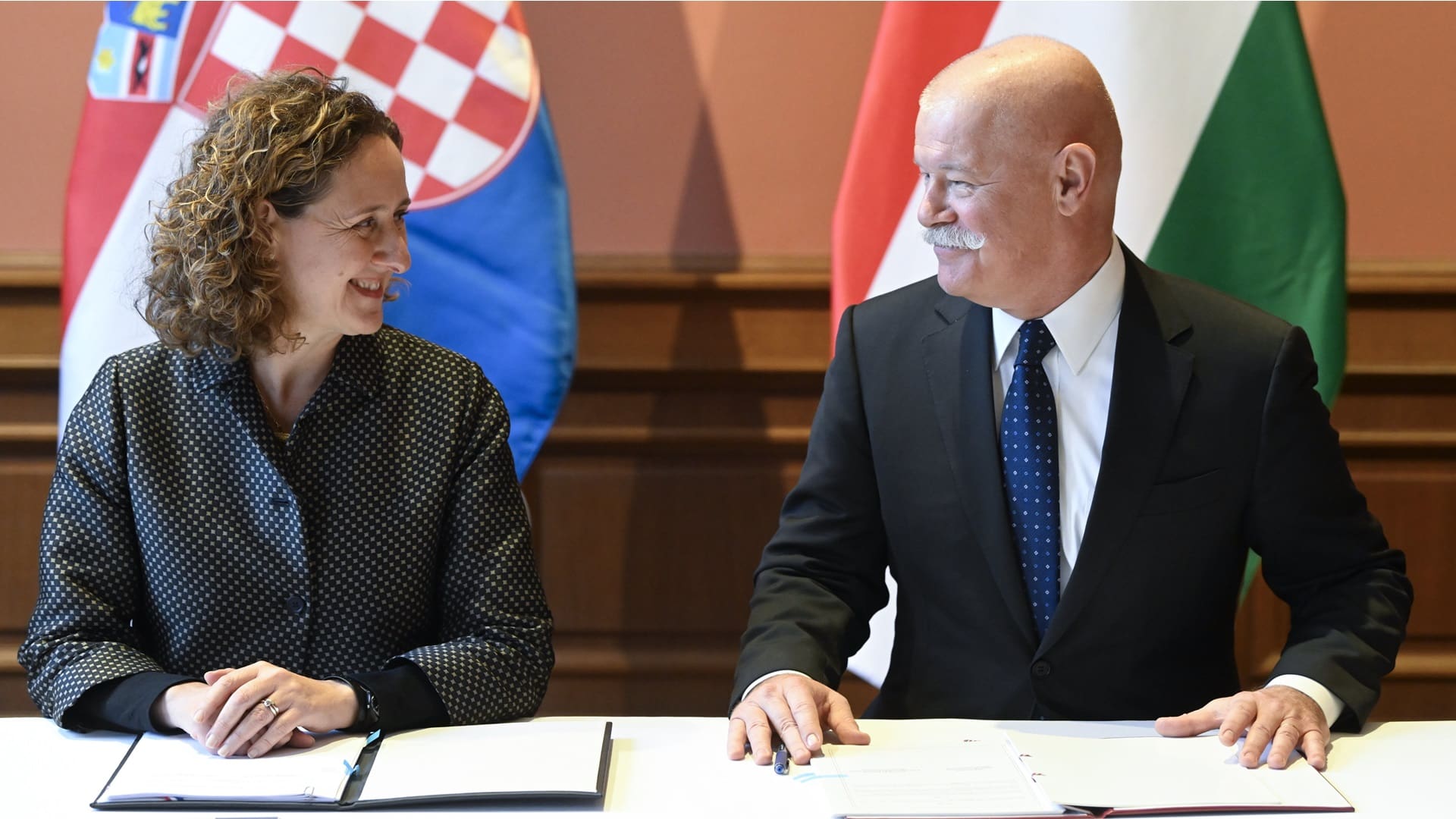Minister of Culture and Innovation János Csák of Hungary and Minister of Culture and Media Nina Obuljen-Koržinek of Croatia signed an extended cultural cooperation pact on Monday, 20 November in Budapest, Hungary.
The two neighbouring EU Member States have respective cultural institutions operating in each other’s capital, which are doing great work, and habitually hosting performing art and visual art events, as Minister Csák pointed out at the ceremonial signing of the cooperation document at the Budapest Museum of Fine Arts.
This new cooperation agreement is an extension of the old one expiring this year. To mark the occasion of the renewal, a Croatian choir will be giving a concert on 6 December at St Stephen’s Basilica in Budapest; while the Hungarian Radio Children’s Choir will be giving a performance in Zagreb, Croatia, at a yet-to-be-determined date and venue, sometime before Christmas.
Under the scope of the cooperative project, many cultural vents will be held in the upcoming two years in the tow countries,
including theatre performances and the publishing of literary translations. Csák also lauded the work of the Croatian Theatre of Pécs in the Southern Hungarian city of Pécs.
‘We still have a lot of plans, as in the fragile world we live in today, we must appreciate friendships,’ Minister Csák told the audience at the museum in Budapest. He went on to point out that the 800th anniversary of the Croatian-Hungarian collaboration was marked just last year, which was celebrated in the Hungarian National Museum in December 2021, ahead of the anniversary. The two nations’ joint history goes even further back, as
King Coloman (Kálmán) of Hungary also ascended to the Croatian throne in 1097.
‘We are connected through many means, through commerce, economy, culture, our way of thinking, and security—so, we have plenty to build upon,’ Minister Csák explained. Meanwhile, Minister Obuljen-Koržinek thanked the Hungarian government for inviting her to Budapest; then stressed the historical friendship between Croatia and Hungary, and lauded the fact that the new cooperation programme will provide the artists and cultural institutions of both countries with a new network of support.
Related articles:








